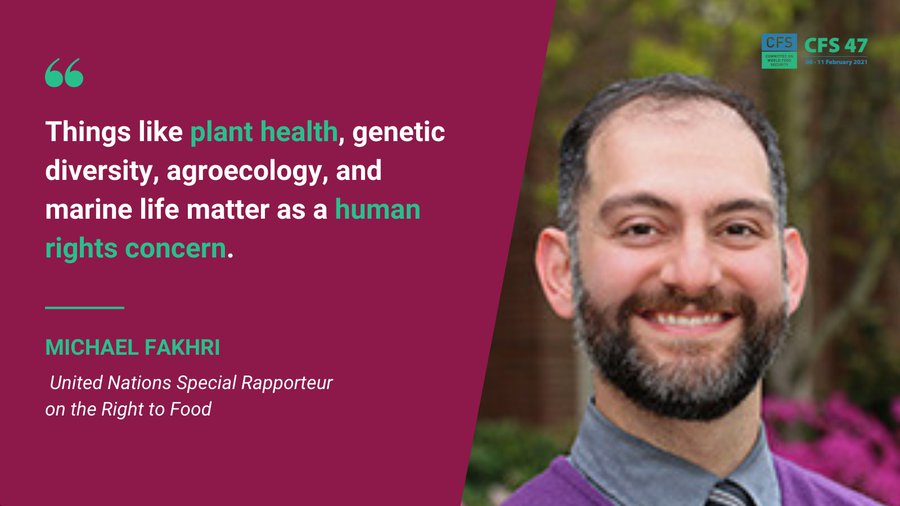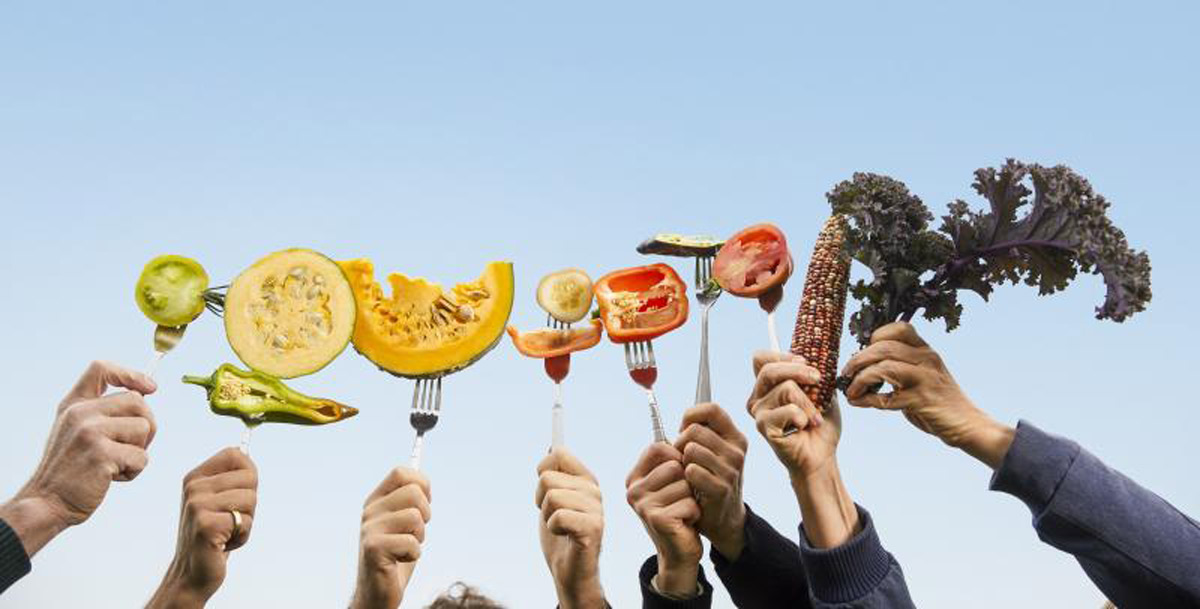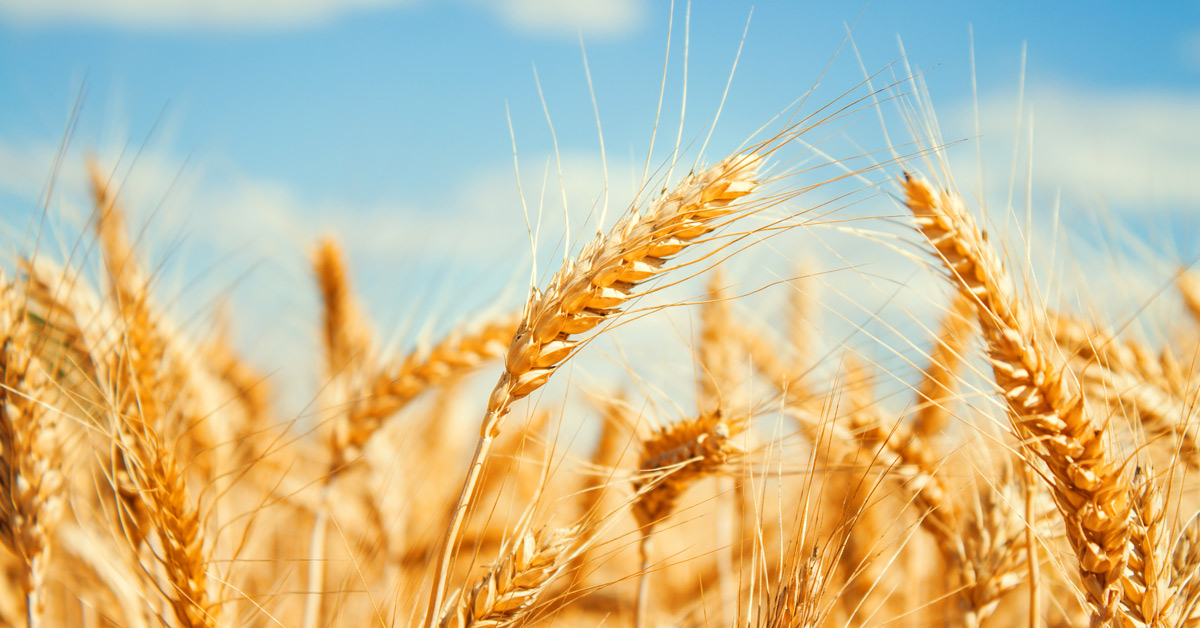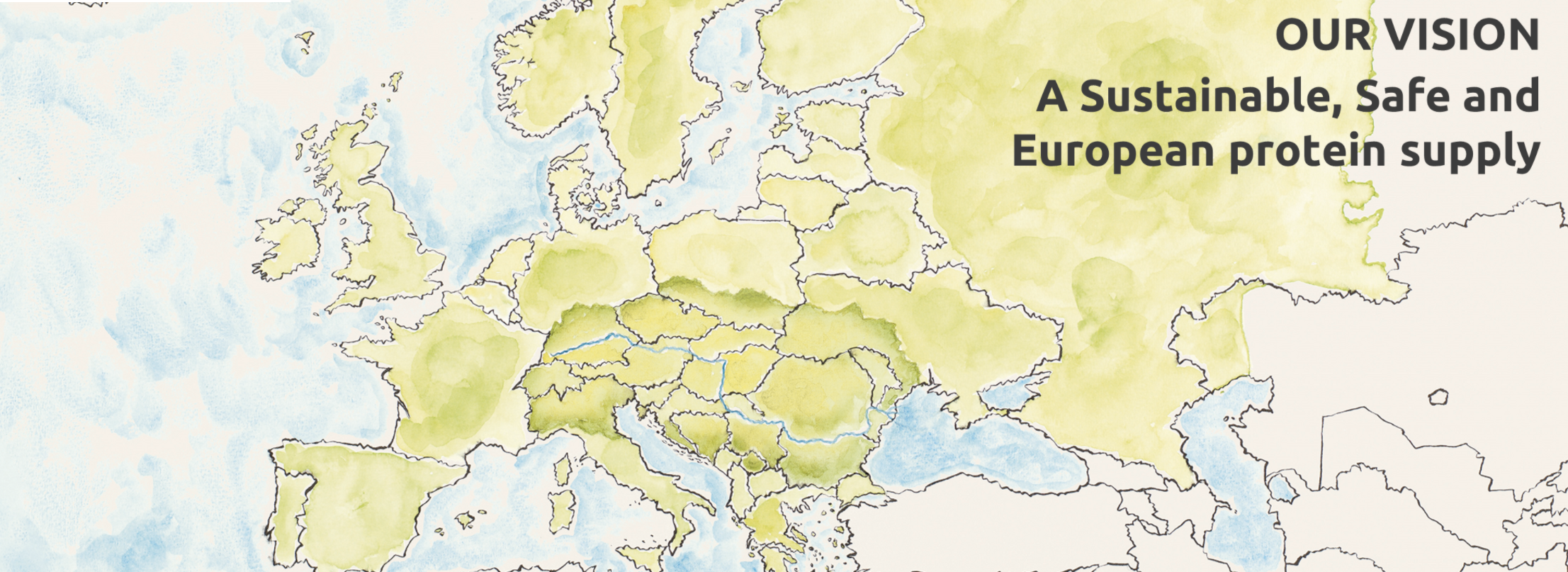Welcome to our latest Review, which brings you some of the encouraging recent news on how the use of traditional and innovative non-GMO agricultural approaches can solve our food and farming problems without all the downsides of GMOs.
These approaches can involve plant breeding, using the plant’s inherent genetics to achieve specific advances (see, for instance, the item on non-GMO drought-resistant potatoes in Peru), but they can also involve farming systems, which can be as important as genetics – if not more so – in providing resistance to pests, diseases, and other stresses.
When it comes to plant breeding, don’t forget to check out our regularly updated database of Non-GMO Successes, covering such areas as high yield, pest resistance, disease resistance, tolerance to all kinds of specific soil and weather conditions (e.g. heat, drought, frost, flood, salt, low nitrogen, etc.), and more – basically all the things old-style and new-style GMOs are always promising to do while almost invariably failing to deliver!
Finally, look out for the TAKE ACTION item on new seed laws. As the petition says, “We are at a crossroads for the future of our food”. And it’s time governments stopped succumbing to industry pressure and started making the right choices.
NON-GMO SOLUTIONS
From GMOs to regenerative agriculture: a scientist’s journey
Dr Laura Kavanaugh, who worked as a scientist for Syngenta for 12 years helping to develop GMO crops, now sees regenerative agriculture as a better long-term solution than the “very narrow approach” of GMOs. It was while working at Syngenta that Dr Kavanaugh began to see the problems with the GMO approach. “We create something as a GMO to try to overcome something in nature, but nature never sleeps,” says Kavanaugh, who has a PhD in genetics and genomics from Duke University. “GMOs fundamentally drive a very, very narrow approach, and that’s not a sustainable position,” she says. Kavanaugh came to see that natural systems are the long-term solution that agriculture needs to build healthier soils, but that didn’t align with Syngenta’s direction of developing and selling patented GMO crops, because “It’s very hard for a company like Syngenta to get a product out of soil health”. She is now the chief science officer for Advancing Eco Agriculture (AEA), which works with farmers to help them transition to regenerative agriculture. Kavanaugh isn’t the first scientist to leave GMO science for more sustainable research. Cotton breeder Jane Dever, for instance, left Bayer to develop organic cotton varieties at Texas A&M’s AgriLife Research and Extension Center. Other plant scientists who have become alienated from GMO crop development include Caius Rommens and Belinda Martineau.
UN hunger expert says GMO crops are creating a degree of homogeneity that’s “really quite dangerous”, calls for move to agroecology
According to United Nations hunger expert and special rapporteur on the right to food Michael Fakhri, “Because corporations continue to gain power and it’s so hard to hold them accountable, we have a food system that’s making us more sick every day.” It also damages biodiversity and lacks resilience. Fakhri cites the example of GMOs, which he says create homogeneity, creating field after field of the same type of plants, which makes them more vulnerable to pests and factors exacerbated by the climate crisis. “To have this degree of homogeneity is really quite dangerous,” Fakhri told the Guardian. “It’s bad for the environment and bad for the future of resilient plants.” In his new UN report on responding to the food crisis, Fakhri says we need, among other things, to move away from industrial agriculture towards agroecology, as part of transforming food systems to make them more resilient to climate change and prevent biodiversity loss. His previous UN report highlighted how a just transition to agroecology provides the way forward. This is the same conclusion that the 400 experts brought together by the World Bank and the FAO reached in their international assessment. More on agroecology here.
Largest agroecological transition in the world offers bright future
Back in the summer we reported on how a study comparing three farming methods prevalent in Andhra Pradesh, India, concluded that agroecology delivered higher yields, crop diversity and farmer income (on average a 49% net increase) compared with the other methods, which included chemically intensive farming. Spanning over 6 million hectares and involving nearly 6 million farmers and 50 million consumers, what is known locally as “Andhra Pradesh Community-Managed Natural Farming (APCNF)” represents the largest agroecological transition in the world and its success is attracting increasing attention. The latest indication of that is an FAO-backed forward-looking report comparing future scenarios involving 100% GMO-and-chemical-intensive industrial agriculture on the one hand and APCNF on the other. This concludes that in 2050 APCNF would produce more and better plant food per capita than industrial agriculture, and that the food would be healthy, chemical-free and highly nutritious. APCNF would also provide more employment and help farming be seen as more resilient and less risky than industrial agriculture.
Success of APCNF reflected in national awards
The New Indian Express reports on how Narayanappa, a marginal farmer involved in Andhra Pradesh’s agroecological transition, is one of three APCNF-related winners of the Jaivik India Awards. Narayanappa owns a two-acre land holding in a semi-arid tropical region where, due to insufficient rainfall, agriculture had become challenging. This plunged Narayanappa and his family into financial difficulty. But after switching to APCNF’s agroecological approach, Narayanappa managed to grow a far wider diversity of crops and replaced expensive chemical-based fertilisers and pesticides with low-cost home-prepared ways of tackling pests and increasing soil fertility. T. Vijaya Kumar, a leading figure in the state’s support for APCNF, said of the awards, “It is a proud moment for AP (Andhra Pradesh). Many farmers like Narayanappa have achieved year-round food security, financial stability, freedom from debts, and good health for themselves and their families by adopting natural farming.”
TAKE ACTION: Sign the petition to support diversity!
The EU is currently negotiating new rules for the seed market. The current rules, introduced in the 1960s, promote seeds that were developed for industrial agriculture. These seeds can be sold together with harmful pesticides and synthetic fertilisers, and grown in monocultures. Now Big Agribusiness is pushing for the rules to go even further, outlawing diversity to make both the seed and our food system even more uniform. What we need is the opposite. We need seed laws that secure our right to healthy, diverse and tasty food, by truly enhancing diversity in farmers’ fields and in gardens, supporting local varieties, and respecting farmer’s rights. Sign the petition to call on EU decision makers to not succumb to industry pressure, but to protect and promote crop diversity as well as farmers’ rights to harvest, use, exchange and sell their own seed! You can sign wherever you are in the world.
Non-GMO drought-resistant potatoes in Peru
In Peru, researchers are breeding drought-resistant potato varieties. They make use of wild potato species so that cultivated potatoes can cope better with drought. Wild potato relatives grow in the wilderness and are subject to natural selection, so they are adapted to heat, drought, cold or they are resistant to diseases. Breeding researchers have already developed the first drought-resistant new varieties. They are also rushing to save the original species. So far, 2,500 varieties have been saved. Details of many more non-GMO drought-resistant crops can be found in our database.
Seed guardians of Peru and Iowa preserve yesterday’s crops for tomorrow’s farmers
From potatoes to quinoa, many of our favourite foods are at risk from threats like climate change and disease. The “seed guardians” of Potato Park in the Andes are hoping to change that. Asociación Andes, a non-profit organisation in Cusco, Peru, is working to protect biodiversity and Indigenous rights in the region. There are more than 1,300 varieties of potato to be found growing in the mountains of the Andes. Now these varieties are being tested by farmers with the aim of finding those that can best adapt to the challenges of climate change. Meanwhile in Iowa, USA, Seed Savers Exchange is a non-profit organisation dedicated to the preservation of heirloom seeds. The organisation uses a combination of ex situ conservation (long-term storage of seeds in their gene bank) and in situ conservation (sharing their seeds with gardeners and farmers to grow). All of their seeds are open-pollinated, which means growers can save seed year after year. Executive director Mike Bollinger said, “There’s so much built into a lot of these open-pollinated varieties already, it’s a matter of being able to start growing these out and using the inherent genetics in them. You can navigate through that with the intelligence that is already built in... as opposed to trying to use technology to create something that doesn’t exist.” In GMWatch view, this is a lesson that genetic engineers would do well to learn.
Neighbourly partnerships help plants to better resist disease
Planting different varieties or cultivars of any given crop together in the form of seed mixtures has long been a key strategy of agroecology. The genetic diversity in these mixed “seed populations” avoids the vulnerability of a genetically uniform crop, helping to protect the crop from stresses such as fungal diseases, pest attacks, and bad weather. However, mixtures have variable success in controlling disease. A new study published in PLOS Biology sheds light on this phenomenon. The study found that certain mixtures can affect plants’ susceptibility to fungal disease, providing a form of social immunity in wheat and rice. Disease susceptibility in these crops was found to be affected not only by genetic resistance traits but also by interactions with neighbouring plants of the same species. The findings show that inter-plant cooperation can reduce disease susceptibility – and hence the need for pesticides – by nearly 90% in certain cases, as much as is conferred by a plant’s own resistance genes.
Diversification in rice farming increases yields, biodiversity and incomes
A recent meta-analysis published in Nature summarised most of the available scientific evidence of the effects of agricultural diversification on the socio-economic and environmental aspects of global rice production. Overall, the analysis found that agricultural diversification can increase biodiversity by 40%, enhance rice economics by 26%, and reduce crop damage by 31%. The evidence thus shows that the use of diversification practices can make rice production significantly more sustainable and resilient globally.
Half of Europe’s soy could be sustainably produced in Europe and be GMO-free
On the occasion of the UN World Food Day, Donau Soja, a membership organisation of non-GMO European-grown soy producers, said it is urgent to establish a European Protein Strategy for Europe’s food security. Donau Soja President Matthias Krön says, “Our protein supply must also prevent deforestation and promote climate-friendly measures. Currently, only about one percent of soybeans are grown as a valuable protein crop in EU countries. This is not enough to meet the protein demand on our continent. This gap in Europe's protein supply can be closed by several measures, including the expansion of soybean cultivation in countries inside and outside the EU… In total, 15 million tonnes of sustainable and GMO-free soy could be produced in Europe by 2030. The remaining 15 million tonnes should only come from sustainable and certified sources from overseas.”
Deepening democracy for agroecological transformations
In a recent lecture, Professor Michel Pimbert, director of the Institute for Sustainability, Equity and Resilience at Coventry University, argues that if we are ever going to create “just and sustainable agri-food systems everywhere” then we must shift control of food and farming away from the corporations and financiers and back to people at large. Among much else, he advocates “participatory policy processes and risk assessments” by “groups of citizens, who may be self-selected or randomly selected from a larger population, such as citizens’ juries”. There are already precedents, not least in Africa and India, where governance issues have been deliberated in this way by, for instance:
** Marginalised farmers in citizens’ juries and scenario workshops on food futures in Andhra Pradesh
** Citizens’ assemblies on genetically modified organisms and agriculture in Mali.
A transcript of Prof Pimbert’s lecture is available here. You can also find a video of his talk (starts at 1 hour 12 mins) here, along with other contributions to the event, Seeding Transformation – A Global Forum on Food Systems & Agroecology.
Statement of the Alliance for Food Sovereignty in Africa at COP28
AFSA, which represents 37 African organisations and networks and up to 200 million people, is calling on the COP28 climate conference to reject false climate solutions, like “Climate Smart Agriculture” and carbon credits, and instead embrace agroecology, which reduces reliance on synthetic fertilisers and pesticides that release greenhouse gas emissions.
..................................................................
We hope you’ve enjoyed this newsletter, which is made possible by readers’ donations. Please support our work with a one-off or regular donation. Thank you!



